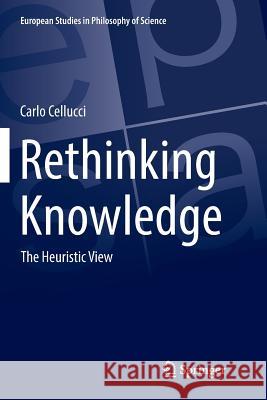Rethinking Knowledge: The Heuristic View » książka
topmenu
Rethinking Knowledge: The Heuristic View
ISBN-13: 9783319850993 / Angielski / Miękka / 2018 / 427 str.
Kategorie BISAC:
Wydawca:
Springer
Seria wydawnicza:
Język:
Angielski
ISBN-13:
9783319850993
Rok wydania:
2018
Wydanie:
Softcover Repri
Ilość stron:
427
Waga:
0.62 kg
Wymiary:
23.39 x 15.6 x 2.31
Oprawa:
Miękka
Wolumenów:
01
Dodatkowe informacje:
Wydanie ilustrowane











